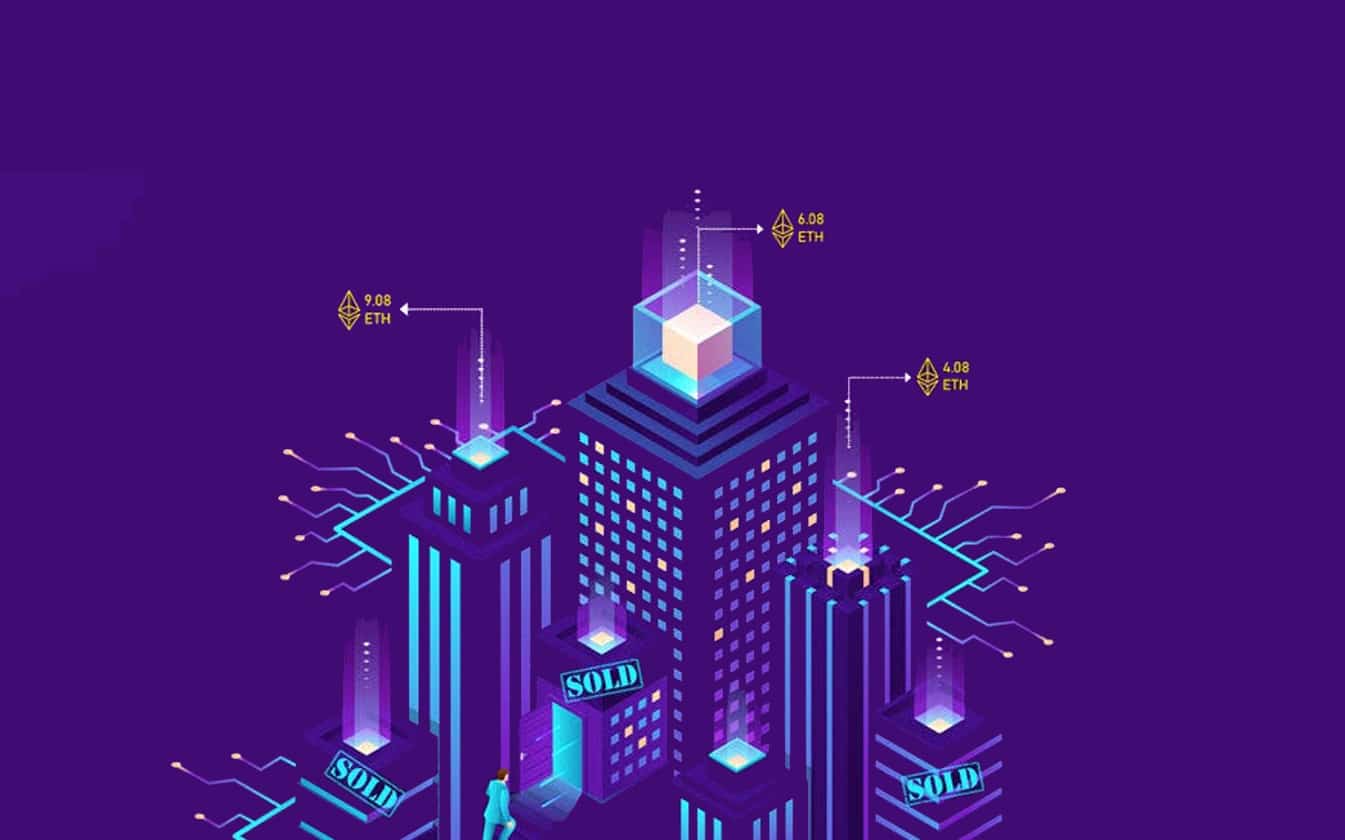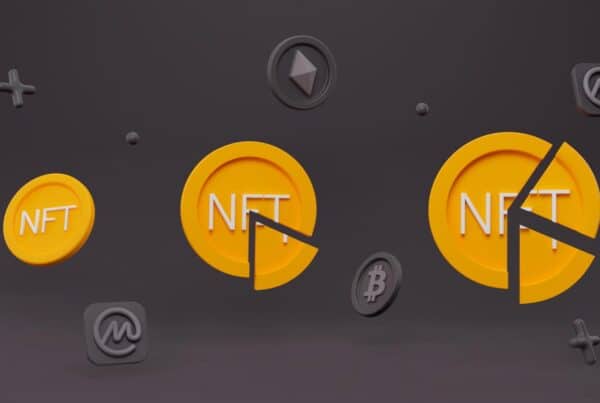Table of Contents
Toggle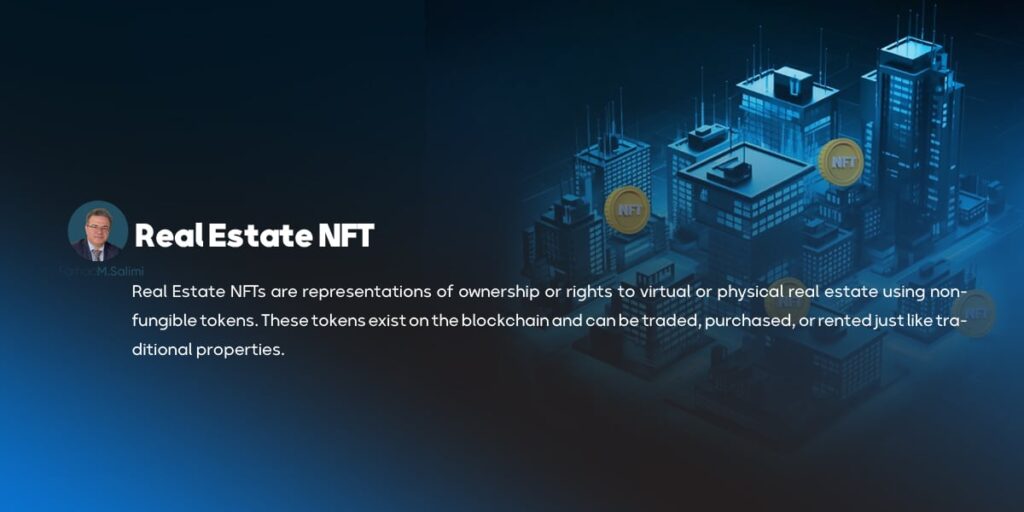
Real Estate NFTs are representations of ownership or rights to virtual or physical real estate using non-fungible tokens. These tokens exist on the blockchain and can be traded, purchased, or rented just like traditional properties.
NFT real estate presents advantages like easy transferability, fractional ownership, minimal transaction fees, unique digital assets, potential value increase, and the ability to generate rental income.
Also, Platforms such as OpenSea, Rarible, SuperRare, KnownOrigin, and Decentraland support the acquisition of Real Estate NFT through cryptocurrency. This emerging trend is transforming the real estate sector, introducing fresh possibilities and complexities that lawmakers and legal professionals must address for its sustainable evolution.
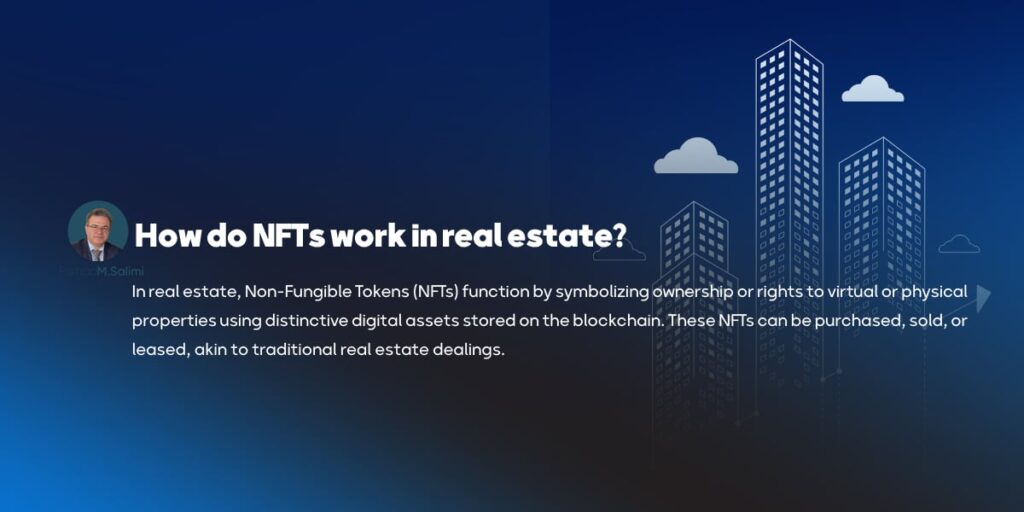
How do NFTs work in real estate?
In Real Estate NFT, Non-Fungible Tokens (NFTs) function by symbolizing ownership or rights to virtual or physical properties using distinctive digital assets stored on the blockchain. These NFTs can be purchased, sold, or leased, akin to traditional real estate dealings.
NFTs provide advantages such as easy transferability, fractional ownership, minimal transaction costs, and the potential for value appreciation. They can also authenticate property titles, reducing title fraud and streamlining ownership transfer processes.
NFTs can be associated with digital real estate in the metaverse, furnishing verifiable evidence of authenticity and ownership. Moreover, NFTs can indicate fractional ownership, enabling multiple investors to engage in real estate ventures. The utilization of smart contracts automates various functions like payments, rentals, and upkeep, boosting security and efficiency in real estate transactions.
While Real Estate NFT unveils new prospects, it also presents challenges concerning legal and regulatory frameworks that must adapt to this cutting-edge technology for its broad acceptance.
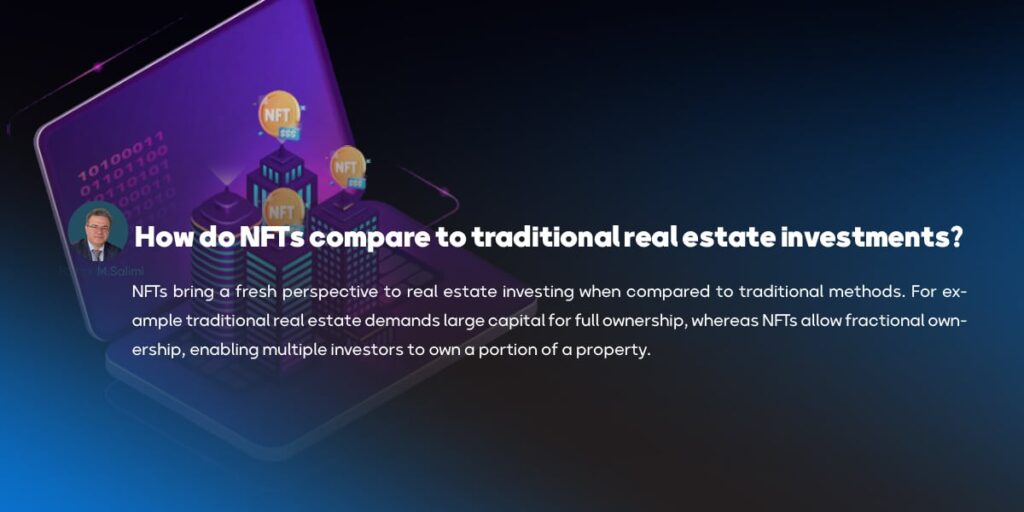
How do NFTs compare to traditional Real Estate NFT investments
NFTs bring a fresh perspective to real estate investing when compared to traditional methods. For example traditional real estate demands large capital for full ownership, whereas NFTs allow fractional ownership, enabling multiple investors to own a portion of a property.
Also, while traditional real estate transactions can be sluggish, taking months to finalize, NFTs provide swift buying and selling capabilities, akin to trading stocks or cryptocurrencies.
Asset Representation
NFTs can depict both real-world and digital assets, including virtual properties in the metaverse, widening the scope of investment opportunities beyond physical real estate.
Transparency and Security
NFTs enhance transparency by documenting every transaction, ownership shift, or update on the blockchain, diminishing the risk of fraud in property dealings.
Tax Implications
The tax landscape for NFT assets is evolving, with considerations like the IRS treating NFTs as collectibles potentially affecting the tax implications of Real Estate NFT investments.
Minimum Investment Requirement
Real Estate NFT investments offer flexibility without a fixed investment threshold, allowing investors to participate with varying amounts, unlike traditional real estate markets that often necessitate substantial initial investments.
Risk Factors
Real Estate NFT markets are nascent and may be volatile, posing risks such as fraud or theft of tokens. Conducting thorough research and collaborating with reputable entities are crucial steps to mitigate these risks.
In conclusion, Real Estate NFT present advantages like fractional ownership, liquidity, diverse asset representation, transparency, and investment flexibility. However, they also carry risks that investors must assess and manage effectively.
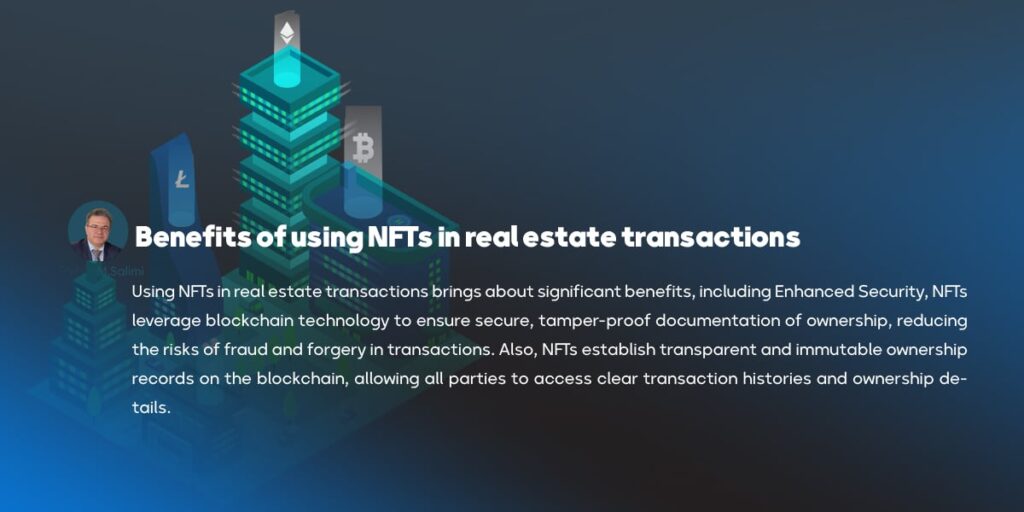
Benefits of using NFTs in real estate transactions
Using NFTs in real estate transactions brings about significant benefits, including Enhanced Security, NFTs leverage blockchain technology to ensure secure, tamper-proof documentation of ownership, reducing the risks of fraud and forgery in transactions.
Also, NFTs establish transparent and immutable ownership records on the blockchain, allowing all parties to access clear transaction histories and ownership details.
Efficient Transactions:
NFTs streamline real estate dealings, enabling direct transactions between buyers and sellers without the need for intermediaries like banks or lawyers, speeding up processes and cutting costs.
Simplified Processes:
Tokenizing real estate assets as NFTs reduces paperwork, contracts, and legal negotiations, enhancing transaction efficiency.
Comprehensive Property Information:
NFTs grant access to detailed property histories, offering insights into ownership, background details, and transaction records, fostering transparency and trust in real estate transactions.
Fractional Ownership Opportunities
NFTs allow for fractional ownership, enabling investors to buy shares of properties rather than the entire asset, making real estate investments more accessible and cost-effective for a broader range of investors.
Global and Fractional Ownership Possibilities
NFTs open doors to global and fractional ownership of real estate, breaking down traditional barriers and offering a more diverse and inclusive investment landscape.
In conclusion, integrating NFTs into real estate transactions enhances security, transparency, efficiency, and accessibility. This innovative approach revolutionizes the real estate sector by providing a more streamlined and inclusive environment for property transactions.
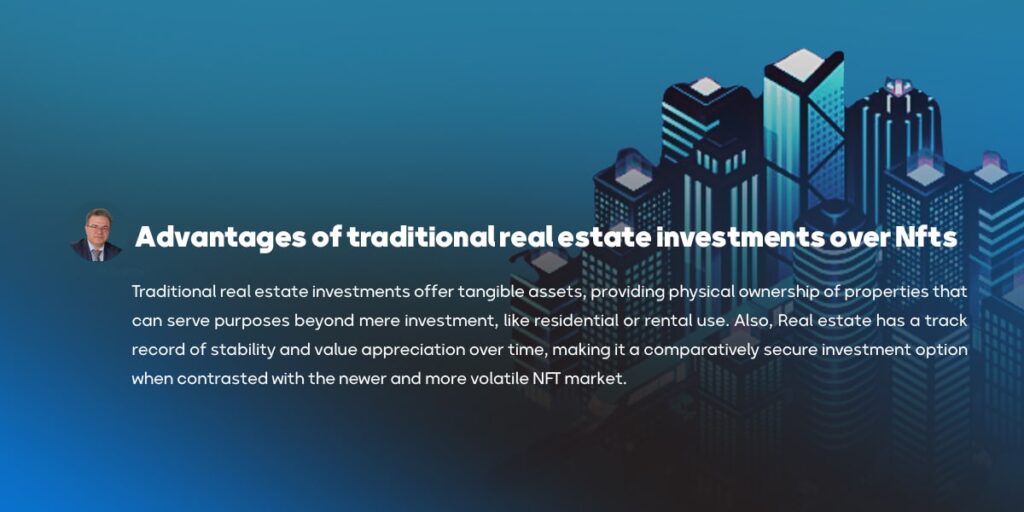
Advantages of traditional real estate investments over nfts
Traditional real estate investments offer tangible assets, providing physical ownership of properties that can serve purposes beyond mere investment, like residential or rental use. Also, Real estate has a track record of stability and value appreciation over time, making it a comparatively secure investment option when contrasted with the newer and more volatile NFT market.
Steady Income
Traditional real estate investments often yield reliable income streams through rents, offering a consistent source of passive income that supports long-term financial planning.
Direct Control
Investors in traditional real estate have hands-on control over their properties, enabling them to make physical improvements or adjustments that boost the property’s value and appeal.
Leveraging Opportunities
Traditional real estate investments can be leveraged through mortgages, allowing investors to acquire properties with a smaller upfront investment and potentially benefit from property appreciation.
Regulatory Clarity
The regulatory landscape for traditional real estate investments is well-established, providing investors with clear guidelines on legal requirements, property rights, and tax implications compared to the evolving and at times uncertain regulations surrounding NFTs.
In essence, traditional real estate investments offer benefits such as physical assets, historical reliability, income generation, direct control, leveraging possibilities, and regulatory clarity. These attributes may attract investors looking for established and predictable investment avenues in contrast to the newer and evolving NFT market dynamics.
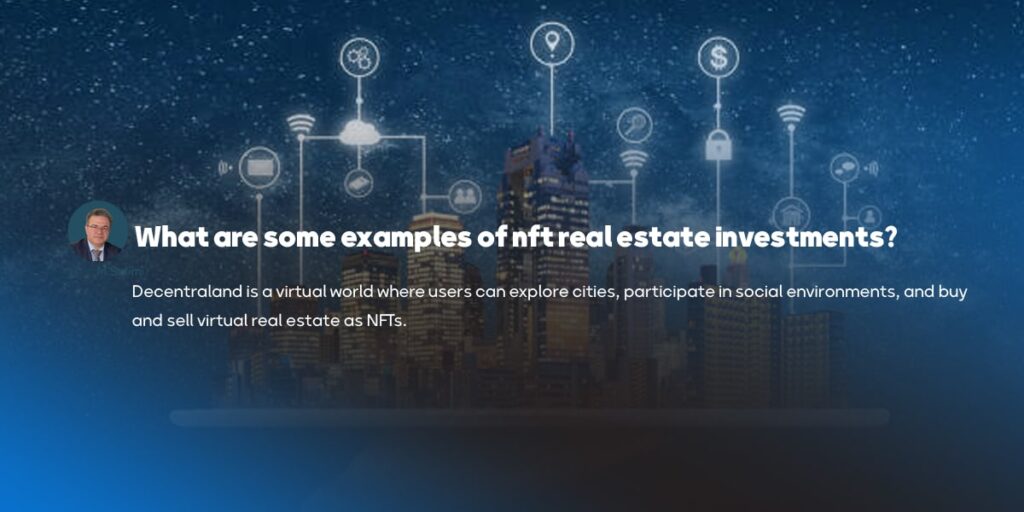
What are some examples of Real Estate NFT investments?
Decentraland is a virtual world where users can explore cities, participate in social environments, and buy and sell virtual real estate as NFTs.
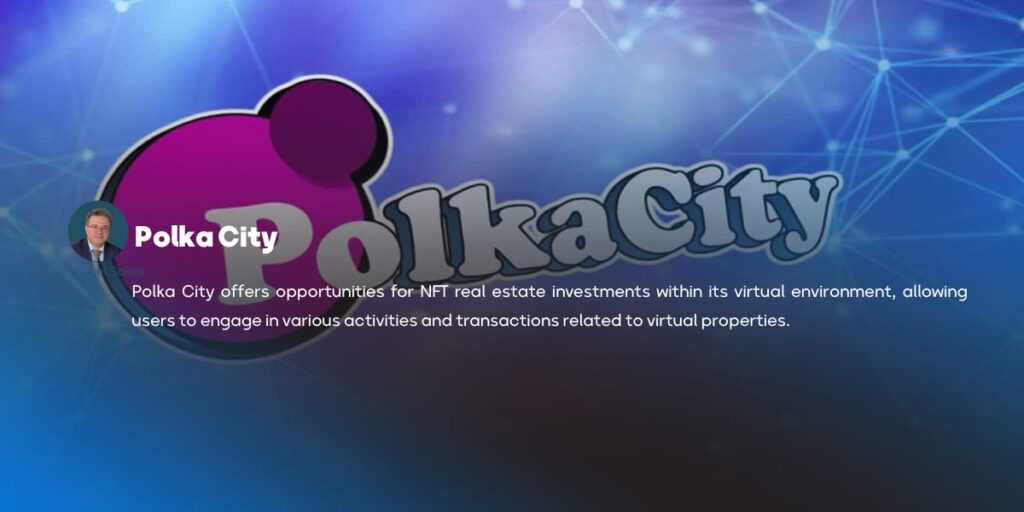
Polka City is a Real Estate NFT sample:
Polka City offers opportunities for Real Estate NFT investments within its virtual environment, allowing users to engage in various activities and transactions related to virtual properties.
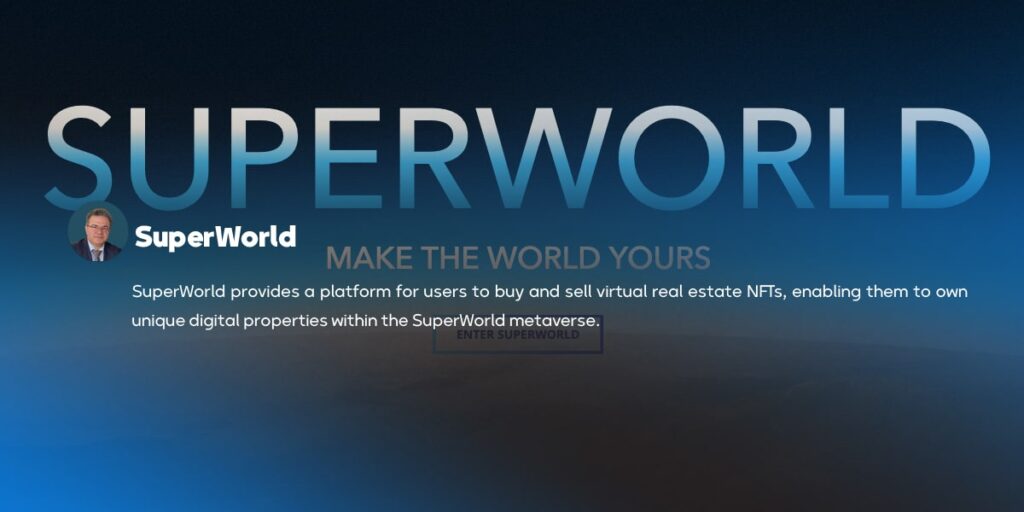
SuperWorld:
SuperWorld provides a platform for users to buy and sell virtual Real Estate NFTs, enabling them to own unique digital properties within the SuperWorld metaverse.
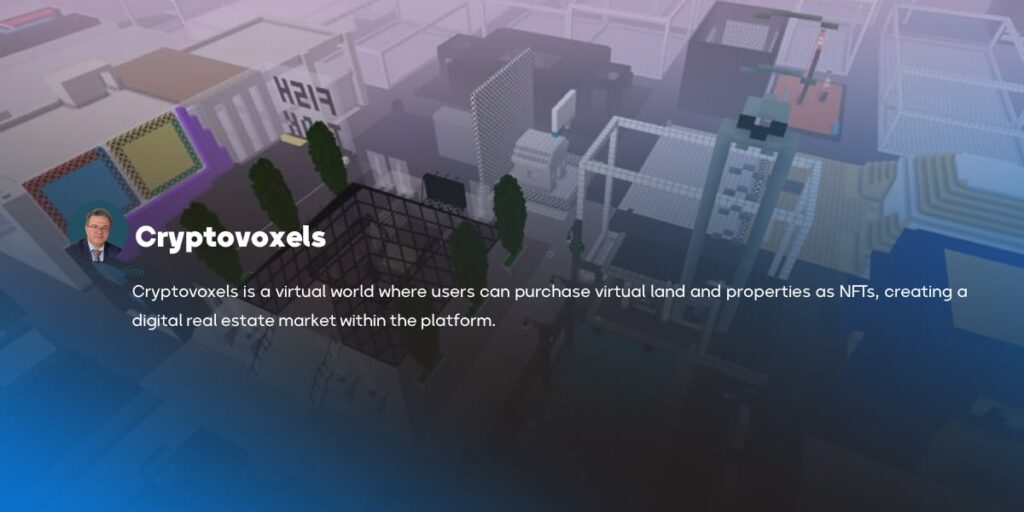
Cryptovoxels:
Cryptovoxels is a virtual world where users can purchase virtual land and properties as NFTs, creating a digital real estate market within the platform.
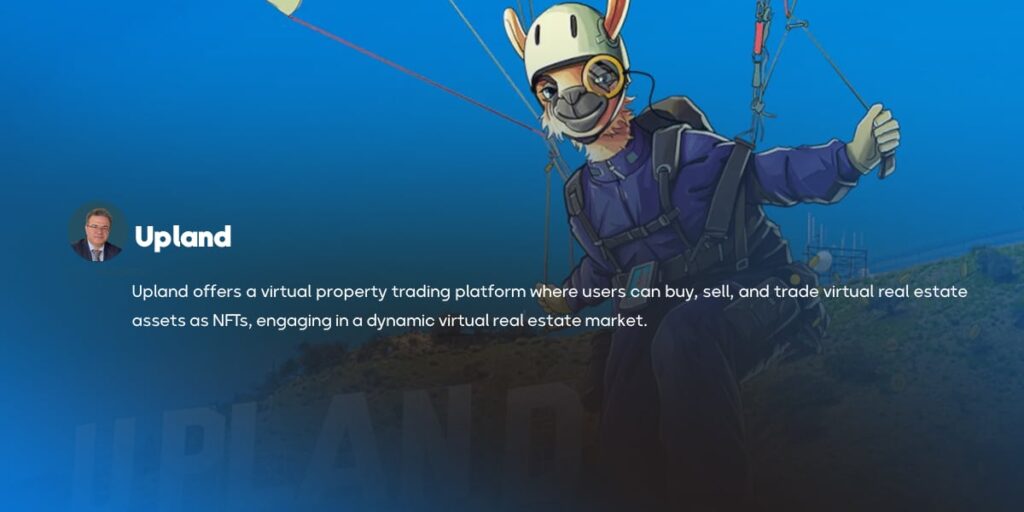
Upland:
Upland offers a virtual property trading platform where users can buy, sell, and trade virtual real estate assets as NFTs, engaging in a dynamic virtual real estate market.
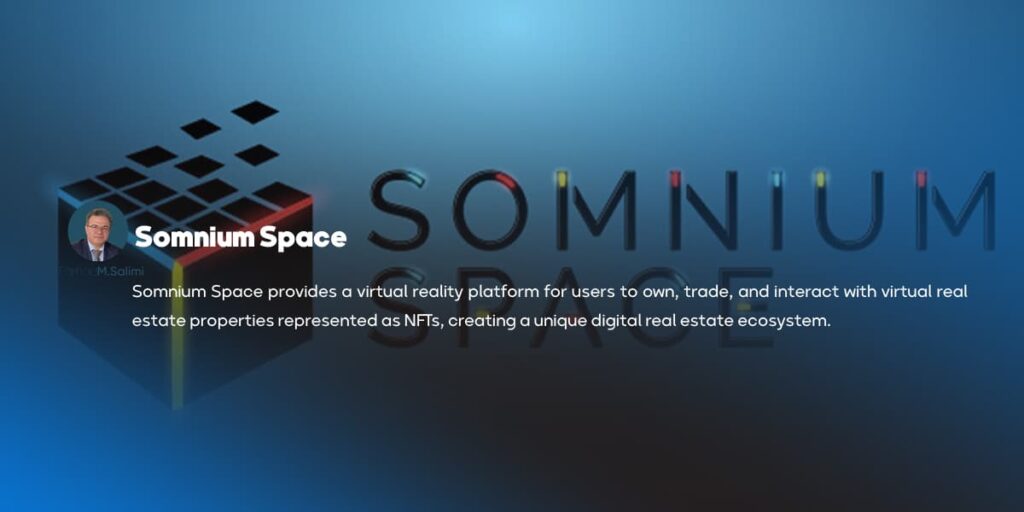
Somnium Space:
Somnium Space provides a virtual reality platform for users to own, trade, and interact with virtual real estate properties represented as NFTs, creating a unique digital real estate ecosystem.
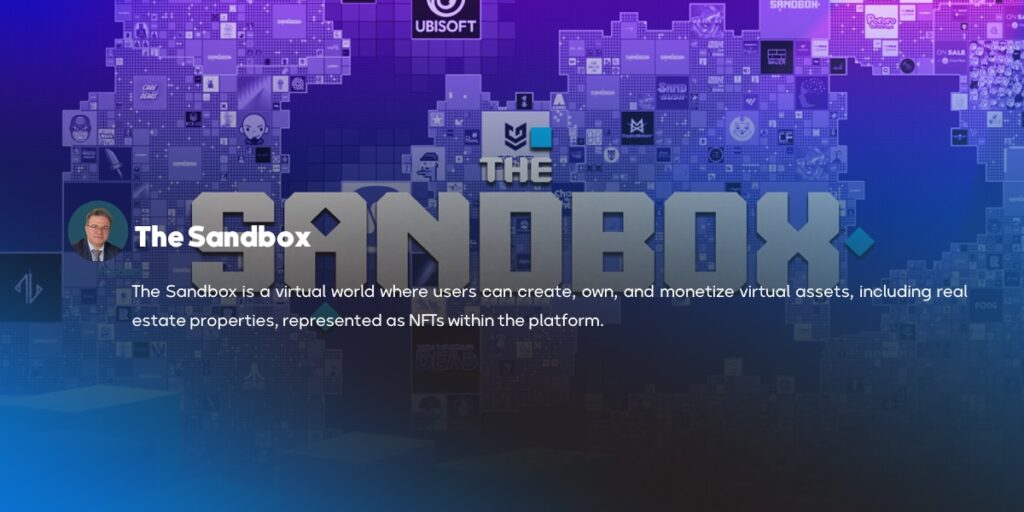
The Sandbox:
The Sandbox is a virtual world where users can create, own, and monetize virtual assets, including real estate properties, represented as NFTs within the platform.
These examples showcase the diverse opportunities for Real Estate NFT investments within virtual worlds and digital environments, offering users the chance to own, trade, and engage with unique digital properties through blockchain technology and NFTs.
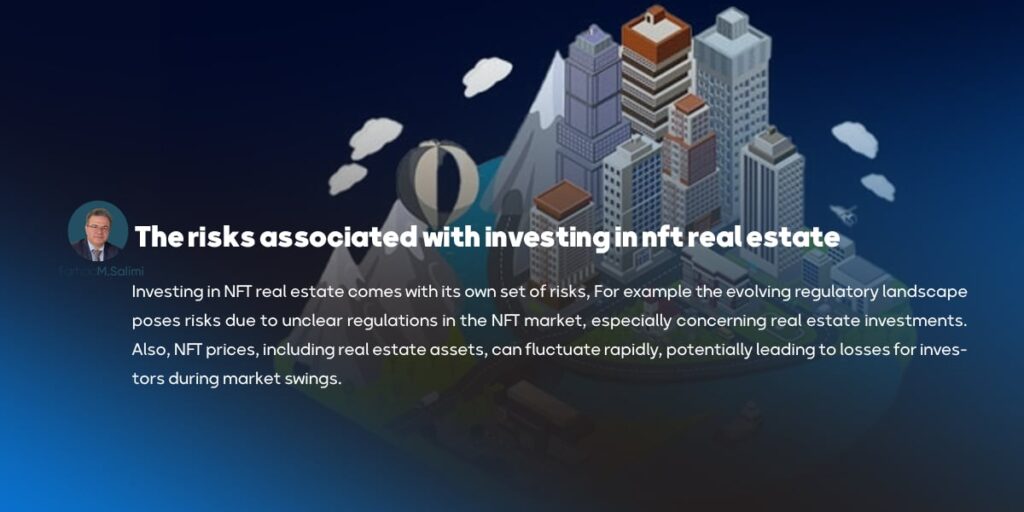
The risks associated with investing in Real Estate NFT
Investing in Real Estate NFT comes with its own set of risks, For example the evolving regulatory landscape poses risks due to unclear regulations in the NFT market, especially concerning real estate investments. Also, NFT prices, including real estate assets, can fluctuate rapidly, potentially leading to losses for investors during market swings.
Technology Risks:
Dependency on blockchain technology exposes NFT assets to vulnerabilities, impacting their value and security.
Market Hype:
Speculative hype may lead to overpaying for NFTs without a full understanding of their underlying value.
Lack of Regulation:
The unregulated nature of the NFT market increases the risk of scams and fraudulent activities that can harm investors.
Technology Vulnerabilities:
NFT projects are at risk of technical issues, potentially causing losses if the underlying technology fails.
Limited Income Generation:
Real Estate NFT investments typically do not generate ongoing income, relying solely on asset appreciation.
Conceptual Complexity:
Understanding NFTs and tokenized real estate can be challenging, requiring thorough due diligence for informed investment decisions.
Navigating these risks requires caution, market knowledge, and diligence to protect against potential financial losses in the dynamic landscape of digital asset investments.
Final word about Real Estate NFT
In conclusion, the intersection of real estate and NFTs represents a transformative shift in the way properties are bought, sold, and owned. The advent of blockchain technology and non-fungible tokens has opened up new possibilities for fractional ownership, global accessibility, and enhanced transparency in real estate transactions.
While the market for NFT real estate investments continues to evolve, investors and industry stakeholders are navigating a landscape rich with opportunities and challenges. As the potential of NFTs in real estate unfolds, it is essential for participants to stay informed, adapt to regulatory changes, and embrace the innovative possibilities that this digital revolution offers for the future of property ownership and investment.


